On November 11, 2024, Trinidadian American writer Elizabeth Nunez passed away in her home Brooklyn. At 80 years old, Nunez was the author of ten novels, several of which won major accolades such as New York Times Editor’s Choice (Prospero’s Daughter) and the PEN Oakland Award (Anna In-Between). Nunez also wrote a memoir, Not For Everyday Use, in which she explores the sharp tension and fierce commitment that governed her relationship with her family and her culture—both that of the country she grew up in, and that of the one she immigrated to as a young adult.
Born in 1944, Nunez spent her childhood in Trinidad before it gained its independence from Great Britain. She was educated on the Western literary canon; her father would often quote Shakespeare to her. It wasn’t until she befriended a civil rights activist at college in Wisconsin that Nunez began to consider her place—or lack thereof—within that canon. Her adult education on the legacy of colonialism in her native Trinidad and in her new home in the United States would prove a central facet of her writing.
Many of Nunez’s books either take place in the Caribbean or center experiences of the Caribbean diaspora in the United States. Nunez is known for her complex characters and was hailed as “a master of pacing and plotting” in the New York Times review of Prospero’s Daughter, a retelling of Shakespeare’s The Tempest through the lens of British imperialism. Her work is as important as it is moving.
Elizabeth Nunez Books
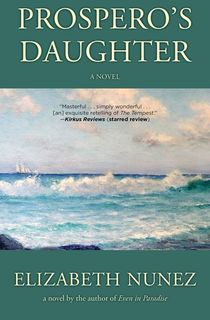
Prospero's Daughter
When Peter Gardner’s ruthless medical genius leads him to experiment on his unwitting patients—often at the expense of their lives—he flees England, seeking an environ where his experiments might continue without scrutiny. He arrives with his three-year-old-daughter, Virginia, in Chacachacare, an isolated island off the coast of Trinidad, in the early 1960s.
Gardner considers the locals to be nothing more than savages. He assumes ownership of the home of a servant boy named Carlos, seeing in him a suitable subject for his amoral medical work. Nonetheless, he educates the boy alongside Virginia. As Virginia and Carlos come of age together, they form a covert relationship that violates the outdated mores of colonial rule.
When Gardner unveils the pair’s relationship and accuses Carlos of a monstrous act, the investigation into the truth is left up to a curt, stonehearted British inspector, whose inquiries bring to light a horrendous secret. At turns epic and intimate, Prospero's Daughter, from American Book Award winner Elizabeth Nunez, uses Shakespeare’s play as a template to address questions of race, class, and power, in the story of an unlikely bond between a boy and a girl of disparate backgrounds on a verdant Caribbean island during the height of tensions between the native population and British colonists.
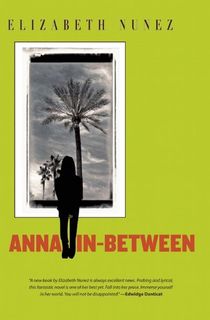
Anna In-Between
When Anna takes a break from her successful publishing career in the US and visits the Caribbean island home of her birth, she is upset to discover that her mother, Beatrice, has breast cancer. The family is upper class, and treatment in America may offer her a chance of survival. But, believing that she would never receive quality care there as a black woman, she rejects all efforts to persuade her as the clock keeps ticking on her illness . . .
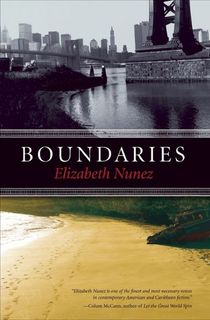
Boundaries
Anna, a Caribbean American immigrant, is eager to assimilate in her new country—but she is about to discover that a gap yawns between her and American-born citizens. The head of a specialized imprint at a major publishing house, Anna is soon challenged for her position by an ambitious upstart who accuses her of not really understanding American culture—particularly African American culture.

Not for Everyday Use
Tracing the four days between the moment she gets the dreaded call and the burial of her mother, Elizabeth Nunez tells of her lifelong struggle to cope with her parents’ ambitions for their children—and her mother’s seemingly unbreakable conviction that displays of affection are not for everyday use. Yet Nunez sympathizes with her parents, whose happiness is constrained by the oppressive strictures of colonialism; by the Catholic Church’s prohibition of artificial birth control which her mother obeys, terrified by the threat of eternal damnation (her mother gets pregnant fourteen times: nine live births and five miscarriages which almost kill her); and by the complexities of skin color in Caribbean society.
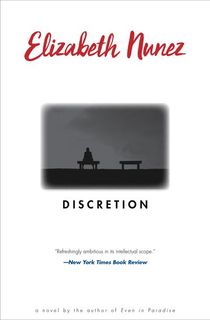
Discretion
Dutifully married to lovely Nerida, Oufoula goes through the motions, formally keeping his distance from the woman with whom he shares his bed. And yet there is a deeper, buried passion within him that will lead him to question which values he holds sacred and which can be sacrificed.
Despite his quiet marriage, the memory of a fiery love affair triggers Oufoula to entangle himself in the life of another woman, a Jamaican-born painter named Marguerite. Soon he discovers that Marguerite is nothing like his quick old flames or his gentle wife, Nerida—Marguerite is much more.
And so begins a whirlwind affair, spanning over twenty years, between a young woman who wants order and love and a man who is torn between the honors of his profession and his dishonorable love life; the old African customs of polygamy and the American dream; the passion for a mistress and the duty to a wife.
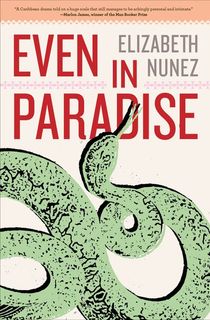
Even in Paradise
Peter Ducksworth, a Trinidadian widower of English ancestry, retires to Barbados, believing he will find an earthly paradise there. He decides to divide his land among his three daughters while he is alive, his intention not unlike that of King Lear, who hoped “That future strife/May be prevented now.” But Lear made the fatal mistake of confusing flattery with love, and so does Ducksworth. Feeling snubbed by his youngest daughter, Ducksworth decides that only after he dies will she receive her portion of the land. In the meantime, he gives his two older daughters their portions, ironically setting in motion the very strife he hoped to prevent.
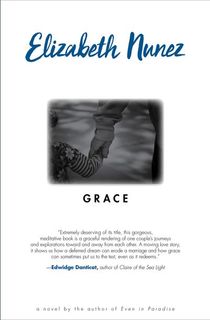
Grace
Justin and Sally Peters are both passionate educators—Justin a hardened, Harvard-educated professor of literature at a small public college, and Sally a gentle elementary school teacher, teaching her students that happiness and joy require strength and perseverance. They’ve had a calm and loving marriage, enlivened by their curious four-year-old daughter, Giselle.
But suddenly Sally, whose past is full of loss, begins to pull away from the man in whom she once found comfort and safety. When Giselle starts asking him if Mommy is okay, Justin worries that Sally is on the verge of leaving him. Is she harboring feelings for a lost lover or, Justin wonders, was she ever really meant to be his wife? As Sally retreats deeper and deeper into herself, Justin wonders if her past has come to claim her once and for all.
As deep snow falls in Brooklyn, Justin and Sally’s relationship is put to the test. What once was a warm and cozy marriage bed becomes as cold as the encroaching winter frost, and the couple must decide if staying together is in everyone’s best interest . . .
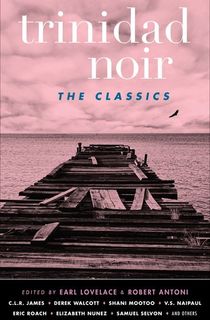
Trinidad Noir
Two of Trinidad’s top writers masterfully curate this literary retrospective of the nation’s best writing over the past century from authors who were largely part of the literary wave that swept in with Trinidadian Independence in 1962. Though Trinidad Noir: The Classics encompasses a variety of moods and themes, it winds up capturing the uniquely Trinidadian character. Influenced by the waning days of the colonial world—an era rife with crime, violence, enslavement, and indentureship—the selections highlight the often heroic individuals of the underclass.
In this anthology, you’ll find reprints of classic stories and poems by C.L.R. James, Derek Walcott, Samuel Selvon, Eric Roach, V.S. Naipaul, Harold Sonny Ladoo, Michael Anthony, Willi Chen, Earl Lovelace, Robert Antoni, Elizabeth Nunez, Ismith Khan, Lawrence Scott, Wayne Brown, Jennifer Rahim, Elizabeth Walcott-Hackshaw, Sharon Millar, Barbara Jenkins, and Shani Mootoo.
This post is sponsored by Open Road Media. Thank you for supporting our partners, who make it possible for Early Bird Books to celebrate the stories you love.
